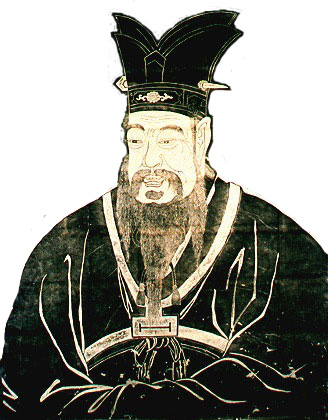By: Dick van Mersbergen
 The third philosopher I came across at the Be Informed headquarters is the famous Chinese thinker and social philosopher Confucius. His quote reads:
The third philosopher I came across at the Be Informed headquarters is the famous Chinese thinker and social philosopher Confucius. His quote reads:
When asked what he would do first if he were in power, Confucius responded:
"Cleansing the definitions of terms we use".
Cleansing the definition of terms we use..? Not many people seeking power would think of that. History shows us many other things considered better to do when in power: to conquer territory or neighboring countries; to eat nothing but cake; to kill all your opponents; to be loved; to indulge yourself with lush banquets; to keep tigers as pets; to possess a golden gun. The list is endless but nothing on redefining stuff. So why would Confucius want that, I thought?
Definitions are key to a proper function of society. As a child of the oldest civilization on earth, Confucius understood that the highest power is the power to define.
Objects vs Relationships
Sadly, it is very hard to create unambiguous and fully understood definitions. Everyone tends to have his own view. This is where both society and businesses process management (BPM) go wrong.
Or should I say Western societies and traditional BPM platforms? Because it is a Western approach to define objects and it is the way traditional BPM suites deal with the complex surrounding world.
A more Eastern style is to focus on the relationships between objects. This is more useful because the definition is co-owned by all the stakeholders involved. Define the relations between objects and you understand the objects better.
Meaningful relationships
In the field of BPM, Be Informed successfully took on a similar approach: creating and describing meaningful relationships between business activities. That is the core of Be Informed’s ontology. It represents nothing less than the language of the business. And he who controls language, controls everything.
With Be Informed, knowledge workers have the power to define. They no longer write endless system requirements, hand these over to the guys in IT and wait anxiously for the results. They define their processes themselves and by doing so they create the system. They are in control.
So we reversed Confucius’ wish: you don’t gain power to define, you define to gain power!
 By: Frank Buytendijk, chief marketing officer
By: Frank Buytendijk, chief marketing officer